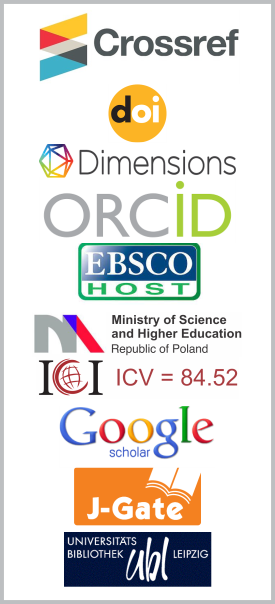Enhancing Decision Making through Key Information Value
DOI:
https://doi.org/10.26713/jims.v8i4.560Keywords:
Value of information, Information seeking, Key information valueAbstract
Organizations have embarked upon various strategies that exploit the use of data and information for competitive advantage. We see numerous strategies proposed for organizations namely in areas of business intelligence applications, such as Data Mining. However, these applications do not inform managers the value of information (VoI) that they generate. Management often does not see the value of such information and how they can relate the information to some measure, such as monetary value or critical business decisions. This produces a gap where managers are unable to identify key information that is important to their business roles with the ability of the technology provided to identify these valuable data. This paper provides an insight to the value of information (VoI) in management and proposes a conceptual model to identify and classify key information value for managers and administrators at all levels of management. The study begins by analyzing revenue-related business processes to identify key information that directly influence the business performance. Qualitative data collection is conducted to solicit information relating to the execution of the business processes to capture other relevant information. A framework is developed to identify and classify the key data and information based on an identified set of criteria for each level of management. This research produces Key Information Value Identification and Classification Framework, which is very useful for companies to enhance their decision-making process at every level or management.
Downloads
References
Tang, Llewellyn, et al. (2008), A characteristic based information evaluation model. Proceedings of the 2nd ACM workshop on Information credibility on the web. ACM.
Zhao, Y., Tang, L. C., Darlington, M. J., Austin, S. A., & Culley, S. J. (2008), High value information in engineering organisations. International Journal of Information Management, 28(4), 246-258.
Van Knippenberg, D., Dahlander, L., Haas, M. R., & George, G. (2015), Information, Attention, and Decision Making. Academy of Management Journal, 58(3), 649-657.
Leckie, G. J., Pettigrew, K. E., & Sylvain, C. (1996), Modelling the information seeking of professionals: a general model derived from research on engineers, health care professionals, and lawyers. The Library Quarterly, pp.161-193.
Nadiminti, R. Mukhopadhyay, T. Kriebel, C. H. (1996), Risk Aversion and the Value of Information, Decision Support Systems, vol. 16, pp. 241-254.
Bharadwaj, AS (2000), A resource-based perspective on information technology capability and firm performance: An empirical investigation, MIS Quarterly, 24(1),169-96.
Barnes, SJ (2001), Experiences in Strategic Information Systems Implementation in UK Healthcare, in R Stegwee & TAM Spil (eds), Strategies for Healthcare Information Systems Idea Group Publishing, pp. 11-30.
Chew-Graham, CA, Maya, CR & Perry, MS (2002), Qualitative research and the problem of judgement: lessons from interviewing fellow professionals, Family Practice, 19(3), pp. 285-9.
Denzin, NK & Lincoln, YS (eds), The Sage Handbook of Qualitative Research, Third edn, Sage Publications, Thousand Oaks. 2005
Castro, D (2007), Improving Health Care: Why a Dose of IT May Be Just What the Doctor Ordered, The Information Technology and Innovation Foundation, U.S.A.
Bhattacherjee, A & Hikmet, N, (2007), Physicians' resistance toward healthcare information technology: a theoretical model and empirical test, European Journal of Information Systems: Including a Special Section on Healthcare Information, vol. 16, pp. 725–37.
Bratvold, R. D., Bickel, J. E., Lohne, H. P, Value of Information in the Oil and Gas Industry: Past, Present and Future, SPE Reservoir & Evaluation. 2009.
Howard, R. A. (1966), Information Value Theory, IEEE Transactions on Systems, Science and Cybernetics, Vol. SSC-2, No. 1.
Sajko, M. Rabuzin, K. Baća, M. (2006), How to Calculate Information Value for Effective Security Risk Assessment, Journal of Information and Organizational Sciences, Vol. 30, No. 2.
Williams, B. K. Eaton, M. J. Breininger, D. R. (2011), Adaptive Resource Management and the Value of Information, Ecological Modelling, vol. 222, pp 3429– 3436, Elsevier.
Walsham, G, (1995), Interpretive case studies in IS research: nature and method', European Journal of Information Systems, vol. 4, pp. 74-81.
Yin, Case Study Research: Design and Methods, 3rd edn, Sage Publications, Newbury Park. 2003.
Downloads
Published
How to Cite
Issue
Section
License
Authors who publish with this journal agree to the following terms:- Authors retain copyright and grant the journal right of first publication with the work simultaneously licensed under a CCAL that allows others to share the work with an acknowledgement of the work's authorship and initial publication in this journal.
- Authors are able to enter into separate, additional contractual arrangements for the non-exclusive distribution of the journal's published version of the work (e.g., post it to an institutional repository or publish it in a book), with an acknowledgement of its initial publication in this journal.
- Authors are permitted and encouraged to post their work online (e.g., in institutional repositories or on their website) prior to and during the submission process, as it can lead to productive exchanges, as well as earlier and greater citation of published work.




